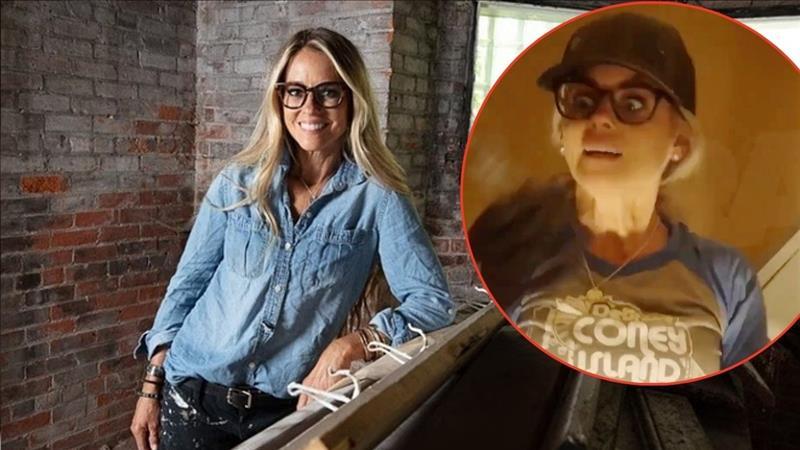Kate Spade’s Company Faced Legal & Financial Troubles Before Her Suicide
June 5 2018, Published 7:50 p.m. ET
Kate Spade's brand was hit with two lawsuits in the years leading up to her tragic suicide at the age of 55. RadarOnline.com can exclusively reveal the legal and financial troubles of the late fashion designer's brand before she took her own life.
In court papers obtained from United States District Court Northern District of California, Plaintiffs Laura Marks, Gaylia Pickles and Donna Vandiver filed a class action lawsuit against Kate Spade and Company on November 20, 2015.
In the third amended complaint, the Plaintiffs accused Kate Spade of “falsely advertising former prices and corresponding price discounts for its Kate Spade Outlet Merchandise.”
The Plaintiffs provided a photo of a price tag with “our price.” It was coupled with advertisements of corresponding and significant percentage discounts ranging from 20 percent off to 70 percent off.
“Upon checkout, Kate Spade provided consumers with sales receipts continuing the misrepresentations regarding false price reductions,” the court papers read. “Current Outlet store sales staff and former Kate Spade employees confirmed that the Outlet Merchandise designated with ‘our price’ price tags was never offered for sale, or sold at the designated ‘our price.’”
The complaint explained how pricing tags included 4-letter identifiers. The Plaintiffs claimed the codes were used internally by Kate Spade to differentiate merchandise manufactured exclusively for Kate Spade Outlet stores.
“Kate Spade Outlet store employees confirmed that merchandise designated with W_RU codes were manufactured for the ‘outlet only’ and had not been previously offered for the sale at the ‘our price’ which is represented on the pricing tags,” the documents read. “The made-for-outlet Merchandise was of inferior craftsmanship and utilized different hardware, materials, logos and product demarcations. These material differences identify Kate Spade Outlet Merchandise as made-for-outlet only.”
The Plaintiffs claim the differences are of such a nature to “deceive” members of the general public.
When customers allegedly scan outlet merchandise, they are not linked to Kate Spade’s website. Instead, they are linked to various eBay and third-party reseller websites.
“Kate Spade frequently concealed from and intentionally failed to disclose to Plaintiffs and others similarly situated the truth about its advertised price discounts and former prices,” the documents read. “Plaintiff would not have purchased the handbag or the wallet in the absence of Kate Spade’s misrepresentations.”
The Plaintiffs asked for damages and a jury trial.
In Kate Spade’s answer to the complaint, the company denied they advertised false former prices or false price discounts at outlet stores operated by Kate Spade. The company denied they are entitled to any relief whatsoever.
Kate Spade asked the judgment be dismissed in favor of the company.
In December 2017, a judge granted Kate Spade’s motion to seal certain narrowed portions of the documents. The parties were ordered to re-file the documents with limited redactions.
The case remains active.
On September 19, 2016, Daniel Irvine and Cheryl Anderson filed a similar action lawsuit against Kate Spade in United States District Court Southern District of New York.
“Kate Spade’s in-store pricing scheme was prominently put forth on its pricing tags which touted the ‘our price’ former retail prices on Outlet Merchandise accompanied by displays above or adjacent to its merchandise,” the complaint read. “The pricing tags touted steep discounts that were being offered to the public from former ‘our price’ retail prices. The ‘our price’ retail prices, however, did not represent prices at which the merchandise was offered for sale and did not constitute the prevailing market retail prices or values for such merchandise preceding the publication of the advertisement. Moreover, Kate Spade failed to inform consumers that the merchandise was of inferior quality, made exclusively for sale in its Outlet Stores and was never sold in its boutique stores.”
Kate Spade denied the allegations against the company.
The parties reached a settlement and the case was dismissed with prejudice.
In 2017, Coach bought Kate Spade for $2.4 billion. Because Spade and her husband Andy cashed out of the business in 2007 by selling their remaining 44 percent for $59 million, they did not receive anything from the sale.
Spade and her husband launched a second brand, Frances Valentine.

Spade was found dead in her New York City by her housekeeper on June 5. She reportedly hung herself.
Stay with RadarOnline.com for more updates.
If you or someone you know is in an emotional distress or suicidal, please call the Lifeline at 1-800-273-TALK (8255).
We pay for juicy info! Do you have a story for RadarOnline.com? Email us at tips@radaronline.com, or call us at (866) ON-RADAR (667-2327) any time, day or night.


